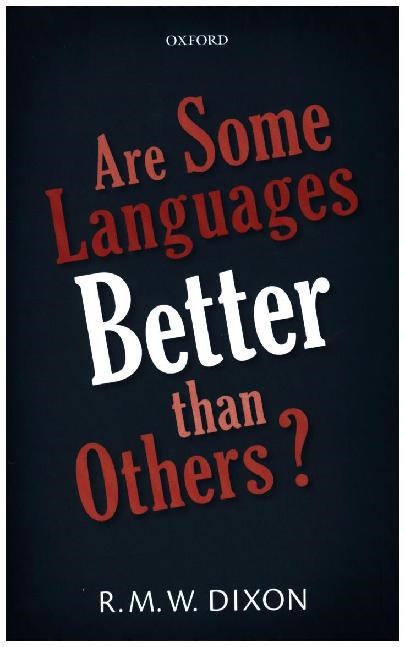Read more
Zusatztext The (in)equality of languages is certainly one of the most vexing issues in modern linguistics. This book effectively challenges some common views on language, ranging from those pertaining to feelings of western cultural superiority to the 'politically correct' convictions prevalent among traditional academic circles. The author offers a balanced and well-informed discussion of the issue and draws from a lifelong research experience with languages of all types, spoken in situations that can differ dramatically. A very refreshing approach that will keep the reader fascinated. Informationen zum Autor R. M. W. Dixon is Adjunct Professor and Deputy Director of the Language and Culture Research Centre at James Cook University. He has written extensively on a number of Australian and Amazonian languages, as well as on ergativity, semantics, and English grammar. His many books include The Rise and Fall of Languages (CUP 1997), Basic Linguistic Theory (OUP 2010-2), Making New Words (OUP 2014), and Edible Gender, Mother-in-Law Style, and Other Grammatical Wonders (OUP 2015). Dixon's academic biography I am a Linguist was published by Brill in 2011. Klappentext This book sets out to answer a question that many linguists have been hesitant to ask: are some languages better than others? Written in the author's usual accessible and engaging style, the book outlines the essential and optional features of language, before concluding that the ideal language does not and probably never will exist. Zusammenfassung This book sets out to answer a question that many linguists have been hesitant to ask: are some languages better than others? Written in the author's usual accessible and engaging style, the book outlines the essential and optional features of language, before concluding that the ideal language does not and probably never will exist. Inhaltsverzeichnis Preface 1: Setting the scene 2: How languages work 3: What is necessary 4: What is desirable 5: What is not (really) needed 6: How about complexity? 7: How many words should there be? 8: The limits of a language 9: Better for what purpose? 10: An ideal language 11: Facing up to the question Notes and sources Abbreviations Acknowledgements References Index ...

